The National Archives has now released the first (approximately) 150,000 records relating to several key British Army Corps during the Second World War. Although marking a significant milestone in the Ministry of Defence (MOD) Service Record Project, this initial release represents only a fraction of the millions of service records due to be transferred to The National Archives over a period of six years.
As ‘Military Collections Researcher’, my primary responsibility is to undertake research into some of the less understood sets of records currently being transferred to The National Archives, in preparation for their public release. My research has mostly focused on military units operating overseas under British Army command during the Second World War. In particular, women’s services in East Africa and the Middle East, as well as various military units comprising largely of non-British, Arab men recruited from regions such as Libya and Aden. While for the most part this has been a relatively straightforward process, some record collations have proved infinitely harder to understand and research.
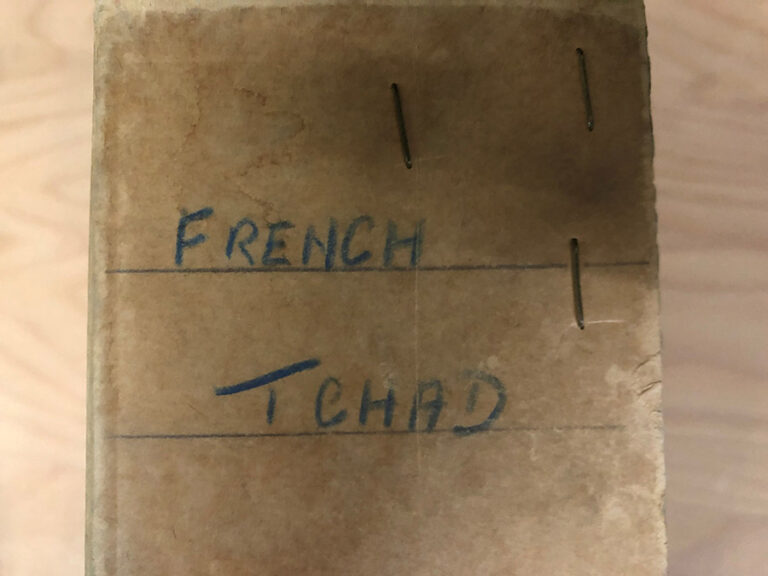
Arguably the most prominent example of this has been my recent research into a particularly puzzling and somewhat peculiar set of service records, due to be released very shortly, simply titled/described as ‘French Tchad’. In total, the set comprises just 131 British-administered service records covering the Second World War period.
‘French Tchad’
To provide some context, following the defeat of France by Germany, Chad became the first French-African colony to re-join the Allies in August 1940, declaring itself as ‘Free French Territory’ under Charles de Gaulle, the leader of Free France. Among the significant number of units formed across French Equatorial Africa during the Second World War was The Third Marching Battalion of Chad – the only Free French unit to take part in the East African Eritrean campaign (June 1940 to November 1941). The Chadian unit also played a significant role in the Western Desert and the Fezzan region of Libya throughout 1941-1943.
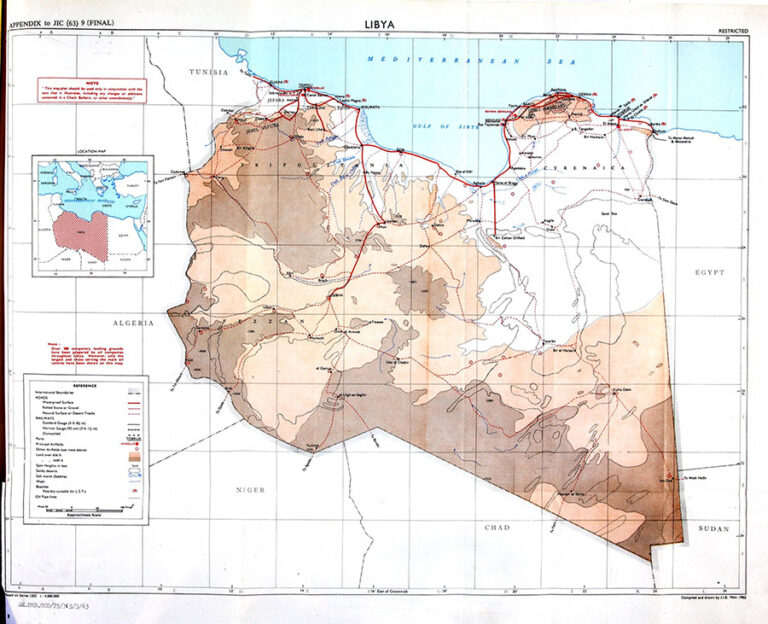
Given this background, how and why did the British Army administer any records at all for French Chadian men? And why was this particular ‘French Tchad’ set of records so incredibly small?
Research
At least initially, the service records themselves only seemed to add to this sense of puzzlement. They reveal that the group of 131 French Chadian men were mostly young with previous combatant experience in the Free French armed forces, but rather mysteriously, all commenced their service with the British Army’s ‘X Pioneer Company’ in Egypt on 7 July 1942. Although we hold war diaries for this unit from January 1943 in the WO 169 series (from the point it was renamed as ‘2004 Pioneer Company’), little administrative background information is provided in any of the documents. In fact, no reference is made at all to the fact that the unit comprises of non-British men from Chad.
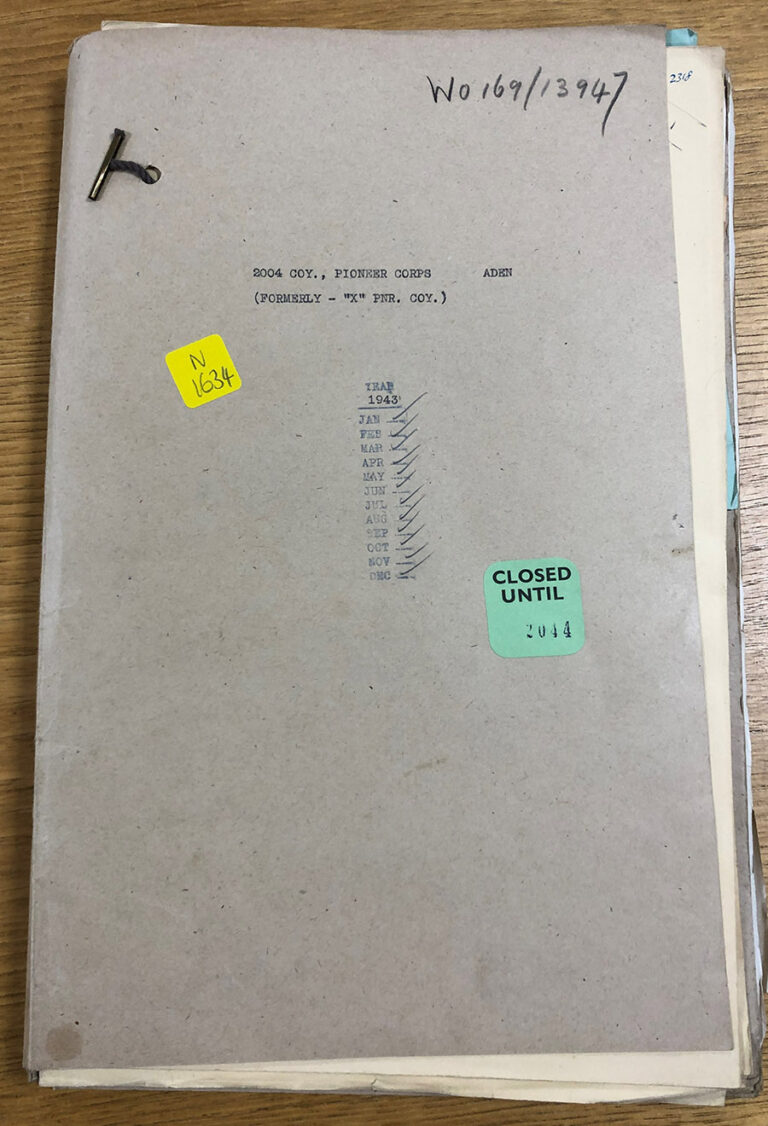
What is known (as confirmed by the service records) is that the Company was first posted from Egypt, to Socotra Island in January 1943, comprising at this point of just seven British and 133 non-British men. Following subsequent postings to other regions, the unit was disbanded on 6 December 1944. Aside from the 1943-44 war diaries for 2004 Company, we hold no other records catalogued as directly relating to the collation.
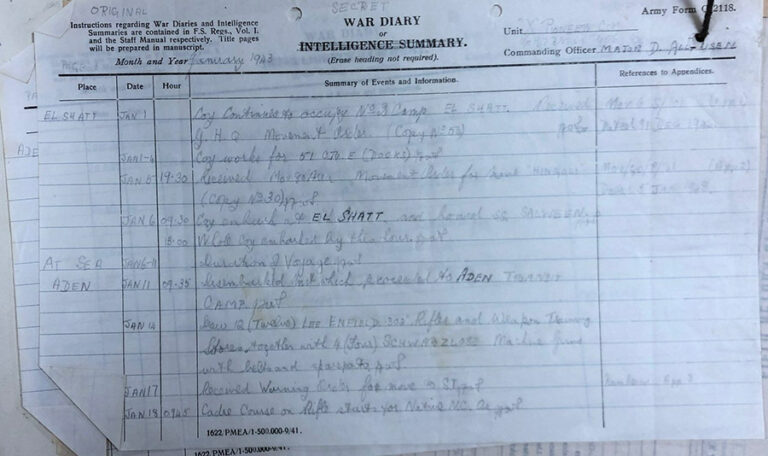
After ordering up numerous other (mostly irrelevant) War Office, Colonial Office and Foreign Office records, it became necessary to adopt somewhat more of a creative approach to the research, turning to the 1942 Foreign Office Correspondence Index. Under ‘French Equatorial Africa’ there were a number of possible records of interest, although again none were catalogued as being directly relevant. One of the items I ordered was FO 371/31987, described on Discovery only as ‘Employment of Free Forces’.
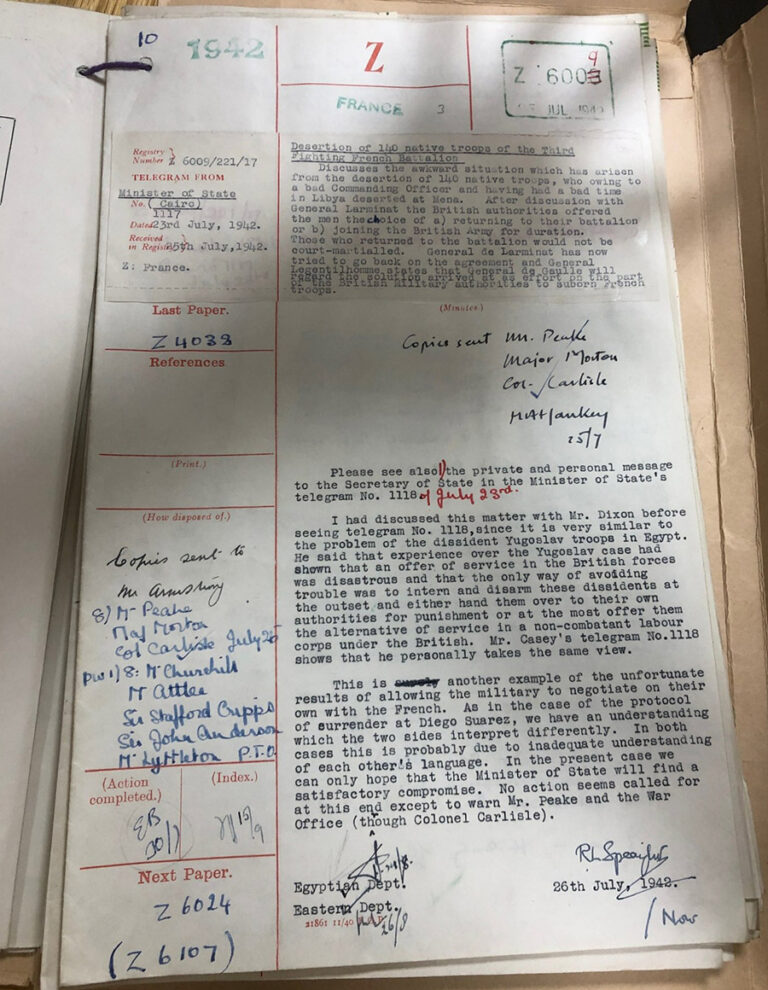
Inside was correspondence from July 1942 relating to the desertion of 140 black Free French troops in the Middle East. As this record revealed, the small party of ‘deserters’ were serving in the ‘Third Fighting French battalion of de Marche’ (The Third Marching Battalion of Chad) when ordered to withdraw from Libya to Egypt, alongside numerous other units in late June 1942.
According to the same British correspondence, owing to a bad time in Libya, as well as an ‘unfit’ Commanding Officer, morale was particularly low within the unit at the time. So much so that the battalion was at El Alamein station in Egypt when some men got the impression that they were going to be left behind by their officers. When British transport passed going East, around 80 men took the opportunity to lorry-jump. They then formed themselves into a small improvised camp in the woods at Mena. Shortly after, joined by another 50 or so men who had marched from the battalion’s lines, on the other side of Cairo, in sympathy.
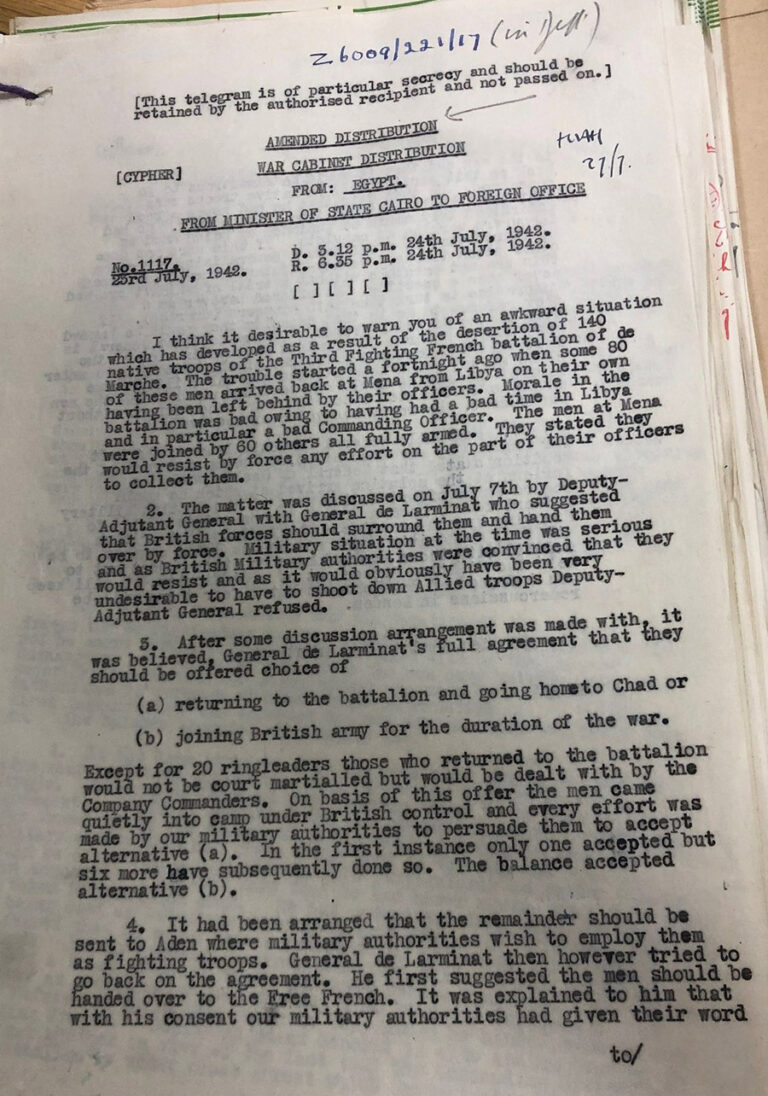
Fully armed with rifles, grenades and some machine guns, the group of men threatened to resist any endeavour by Free French forces to approach by force. In order to avoid bloodshed, the British refused calls to surround the men and enforce arrest. When interviewed by British officers, the men were reportedly calm and stated that they refused to re-join their French unit but wished to join the British Army. In consultation with the Free French forces, eventually an agreement was reached where the Chadian men could re-join their original unit, with the promise of limited punishment as well as being able to return back to Chad. Or instead they could join the British Army, but crucially only as unarmed pioneers and serving for the duration of the war. Alluding to the strength of feeling, all but seven chose the latter.
Crucially, this report of events from July 1942 coincides exactly with information held in the ‘French Tchad’ service records now held at The National Archives. Thus, solving the mystery of what the service records represent and where they came from, but more generally why the British Army administered records for such an incredibly small number of French Chadian men.
I am still waiting for my grandfather’s file (1912-1923) from the First World War and the recent MOD service records do not have full names, even if they are spelt correctly.